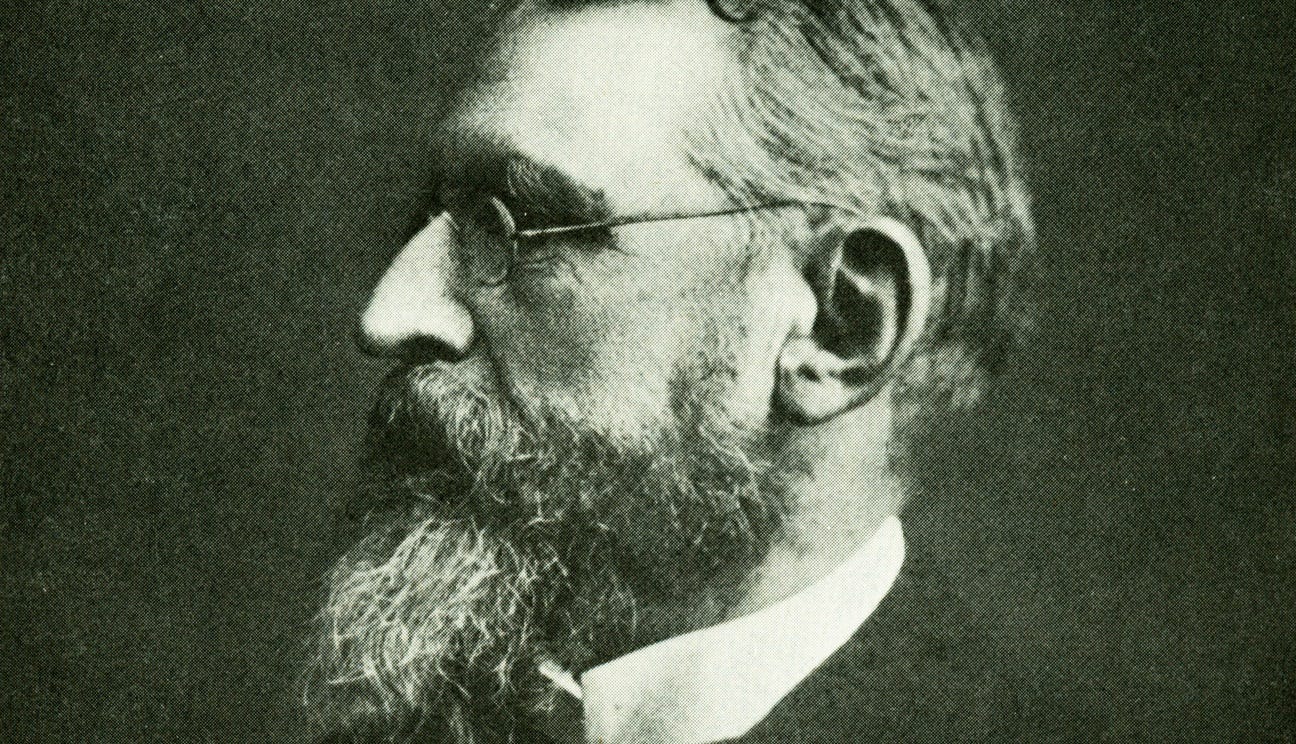January 23rd 1898 – United Irish League founded in Westport, Co Mayo
The organisation sought to rectify the depressed state of agriculture in the west of Ireland.

On January 23rd 1898, the United Irish League was established at a meeting in Westport, Co Mayo by William O'Brien, the former MP for Mallow, and editor of the Land League journal United Ireland. The location was telling – it was in Westport that Charles Stewart Parnell had given his blessing to the Land League back in June 1879. The motto of this new organisation was “The Land for the People”, and it sought to rectify the depressed state of agriculture in the west of Ireland by calling for the redistribution of large estates among small farmers, and by attacking so-called “grabbers” – that is, those who purchased land from tenants who had been evicted.
A reporter for the Freeman's Journal wrote of the gathering, “To-day one of the most remarkable demonstrations which has been held in the West of Ireland in recent years took place in Westport... It was quite evident that the severe distress at present experienced in many of the districts around Westport and the indifference displayed by the Government in relation to it has roused a very determined spirit amongst the people in West Mayo, and they have at last thrown off the feeling of apathy which appeared to have taken possession of them for some years in reference to the National movement.”
1898 marked the centenary of the failed United Irishmen rebellion of 1798, which the name of O'Brien's new organisation deliberately called to mind. Indeed, horsemen attending the Westport meeting carried a banner depicting Theobald Wolfe Tone, emblazoned with the words, “Drummin does not fear to speak of '98. Ireland united is unconquerable.”
At the meeting, O'Brien was joined by John Dillon, MP for East Mayo, Robert Ambrose, MP for West Mayo, and Timothy Harrington, MP for Dublin Harbour. Michael Davitt, who would come to be strongly associated with the United Irish League, was conspicuously absent. Though the League may have invoked Wolfe Tone and the 1798 rebellion, one noticeable difference was its attitude towards men of the cloth. Wolfe Tone had been an Anglican, and a secularist, who railed against the “rusty and extinguished thunderbolts of the Vatican”. At the United Irish League's inaugural meeting, clergymen from the surrounding areas were warmly welcomed by those in attendance.
Indeed, when William O'Brien addressed the crowd, he not only namechecked the holy men present, but referenced Judgement Day as well:
“Fellow countrymen, I don't think I was far wrong when I promised Mr. Dillon here last evening that if the weather treated us fairly, he would see the greatest demonstration of the priests and people of West Mayo that any man upon this platform ever laid his eyes upon before. This meeting has not been held a day too soon. The people of West Mayo have been patient long enough. They have been silent long enough...
A great deal too long, as my friends says, so long indeed, that the evictors and the grabbers, and meaner people still, their sympathisers, have been thinking that they were going to walk over us, and trample on us, and that nothing could resist them. Well, if we could only assemble the agents and the grabbers and their crew here upon this platform and let them just glance into the faces of the thousands of determined young men that I see in front of me here I am inclined to think they would experience pretty much the same feelings they will experience on the Day of General Judgement.”
There was scepticism in some of the media coverage of the Westport meeting at the time – the Dublin Weekly Nation wrote that “the common-sense and patriotism of all classes in the country will be sufficiently powerful to render Mr. Dillon's nocturnal route marches few and far between", a reference to John Dillon's calls for “captains” to assemble in every parish in Ireland at the drop of a hat, even at night. Over the next couple of years, however, it grew considerably. By October 1898, it had 53 branches, mostly in Mayo. By April 1900, there were between 60,000 and 80,000 members of 462 branches across 25 counties.
As he had done with the Land League, O'Brien edited the United Irish League's official newspaper, the Irish People. In 1900, the United Irish League reunited with the Irish Parliamentary Party, who had split in 1891 when Charles Stewart Parnell was named in a divorce case brought by Captain William O'Shea against his estranged wife Katharine, who had been in a relationship with Parnell for years. O'Brien had been careful not to identify with either the pro-Parnellite or anti-Parnellite wing at the time.
Sources
‘Mayo and the Irish Case’, Freeman’s Journal, 24 January 1898, pp. 5-6.
Hickey, D. J., A Dictionary of Irish History Since 1800 (Barnes & Noble, 1980).
O’Brien, Joseph V., William O’Brien and the Course of Irish Politics, 1881 – 1918 (Berkely: University of California Press, 1976).
‘The Westport Ghost’, Dublin Weekly Nation, 29 January 1898, p. 4.



